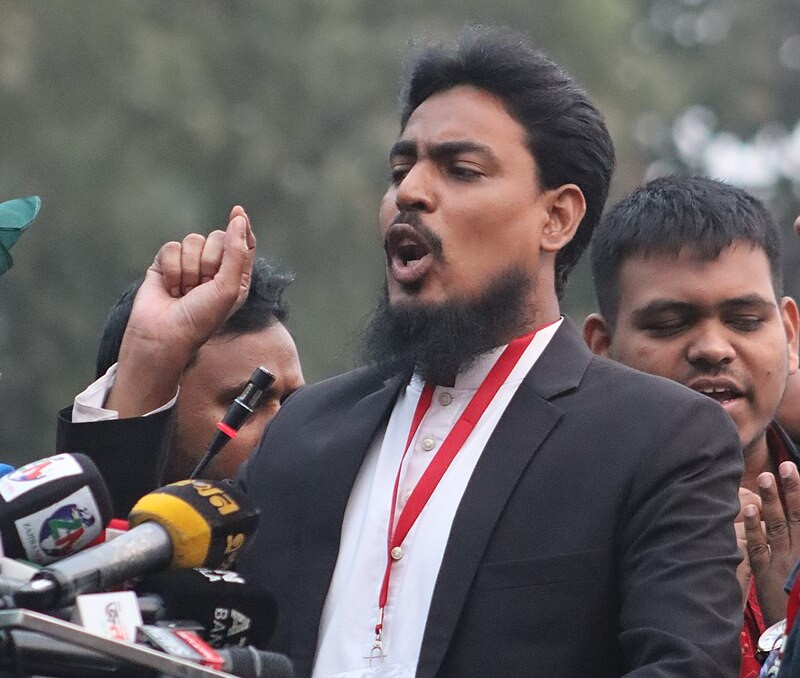The National Citizen Party (NCP) has endorsed the proposal to form a 100-member Upper House through a proportional representation (PR) system, as suggested by the National Consensus Commission. However, the party emphasised the need for a clear and detailed discussion regarding the implementation process of the agreed proposals.
Speaking to journalists during the midday break of the ongoing dialogue with the Commission, NCP Member Secretary Akhter Hossen said that the most crucial issue is the method of implementation, which has not been clearly outlined, leaving a sense of uncertainty.
“We call upon the Commission and Professor Ali Riaz to engage in open and effective discussions with political parties regarding the implementation process. We have rejected the Commission’s proposed timeline and demand that the implementation begins immediately,” said Akhter.
He noted that the day’s discussions included issues such as the Public Service Commission, the Anti-Corruption Commission, and the Office of the Comptroller and Auditor General. Although some parties expressed differing views, the Commission, he said, was able to reach a general consensus.
Later in the session, the structure of the upper house was discussed. The Commission proposed a 100-member upper house where members would be elected based on the proportion of votes received by each party.
The upper house would be allowed to hold bills passed by the lower house for a maximum of two months, and constitutional amendments would require only a simple majority.
However, NCP reiterated its demand that constitutional amendments must require a two-thirds majority in the upper house. Responding to critics who claim PR-elected members are not true representatives, Akhter Hossen argued, “Worldwide, both the FPTP and PR systems are accepted as legitimate. Members elected under the PR system are also representatives of the people.”
He added that even parties receiving 1% of the vote should be allowed to have one representative in the upper house. “This would ensure broader multiparty democracy. Laws would be more thoroughly discussed in the upper house – something that doesn’t happen in the current system. It would help identify legislative flaws and create a space for wider public debate.”
Akhter Hossen also criticised the current practice of amending the constitution based solely on a simple majority in the lower house. “If PR-elected representatives from multiple parties are present in the upper house, constitutional amendments will be made based on broader representation of the people,” he said.
“We are in favour of an upper house,” he continued. “Some are now saying they don’t support the PR system, so the question is whether they want an upper house at all. We believe the Commission’s proposal of a 100-member PR-based upper house will ensure true multiparty representation. The country will be governed through the participation of several parties, not dominated by one or two. This will help establish a culture of democratic practice.”
He added, “Currently, when a bill is passed in the Lower House, there is no further discussion. But if various parties are represented in the upper house, flaws in laws can be identified and reviewed. This will lead to more refined legislation and decisions that are transparent and within the public’s view.”
Akhter Hossen concluded by saying, “We want Bangladeshi politics to move away from violence and conflict and towards a culture based on principles and dialogue. A PR-based upper house with participation from different political parties can help make that a reality.”


